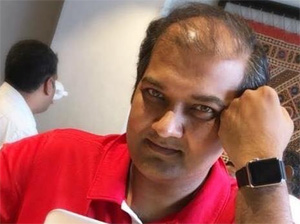Pratishtha Kaura interviews journalist Nimish Dubey on that crucial but much maligned journo-PR relationship
Opinion
 From breaking ice to thought provoking conversations, the best dialogues happen over coffee. For a person working in the profession of PR, conversations over coffee are very common, it might be a rigorous discussion with a journalist or an elaborate interaction with a client but this one was a bit different.
From breaking ice to thought provoking conversations, the best dialogues happen over coffee. For a person working in the profession of PR, conversations over coffee are very common, it might be a rigorous discussion with a journalist or an elaborate interaction with a client but this one was a bit different.
Instead of lazing on a Saturday afternoon, I chose to go to Starbucks in Connaught Place. And even though I am not a journalist, I was here for an interview – as an interviewer. For a different type of interview – The Journalist’s Interview.
“Why?” he asks me. Well, to find out some answers between these two professions where none can ignore the other. And yes, to help the PR community – in understanding media industry with which it works in tandem with.
And if it is at Starbucks, most of you can guess who this personality could be. Yes, Featuring Nimish Dubey, in the first interview of this series.

Nimish Dubey, editorial mentor at Tech PP
Most of us in PR fraternity know him really well. With professional career of 20 years, he started writing in 1999, and iBook was the first gadget that he reviewed. When asked about this, he remarks, “Yes, I got killed for it!” He has been writing for a number of publications including The Times of India, Mint, The Economic Times, and The Indian Express on subjects that vary from tech write-ups to book reviews to sports. Known for his daily gyaan posts and on-point gadget reviews, he is a well-respected and well-read journalist and beyond that an incredibly down to earth human being.
Love-Hate relationship
There is always a love-hate relationship that exists between journalists and PR professionals. While with time, this has improved and cordiality exists between the two professions, it’s still a long way to go.
Why it is that PR pros have to bear the brunt of the journalists’ angst? Nimish remarks, “Most of the decision makers in media, the senior fraternity have a negative perception of PR. Even I have been asked why I am I coordinating with PR and not directly with the company. They still think of them as fixers.” The good thing, however, is that it will get better in the coming 5-6 years.
Our conversation spans across multiple topics from his love for sports journalism, how journalism has changed over years, consumer tech coming into the fore and becoming non-geeky, the splurge of social media and the perils of gifts culture among media. We talk about his love for coffee and Starbucks in particular and how he clicked Smriti Irani’s picture that went viral with over 3.6K likes and 433 shares. When I ask him that even after clarifying his stance that it wasn’t seeded by her PR machinery, why is it that every action of a famous person is considered as a PR gimmick, he sadly replies that we all are too cynical and have got too used to complaining. Believing in the power of telling good to more people than bad, he mentions that, “I firmly believe writing good is very important. I never write, “this is a piece of ‘sh*&!’ I would rather prefer writing this went wrong and could have been better.”
I take notes while sipping my rich Hazelnut cold coffee and he drinks his classic cappuccino. I ask his view on how the PR and media landscape changed over years. Having familiarity with the profession of PR as he has also worked in the industry some years ago, he says that there were limited number of publications where a product could be profiled and it was slightly easier to build one on one relationships with the media back then. Then came the dot com boom when Nokia N8 was launched and it was then that people heard about - ‘bloggers’. The whole blogosphere and thereafter social media made the landscape wider. Today, it is not only tough but scattered. Earlier you could pitch one thing to 5 people, doing it for 50 people today is difficult.
There is an expression of sadness on his face when I ask him about change in journalism and he points out commercialism of the fourth estate. He continues that there is pressure on media – of filing more stories, getting more likes and so on. “We are getting back into the game of measuring. Too many of us are compromising and perhaps I am guilty at times.” He quotes a speech by Arun Shourie where he mentions that “a reader is BUYING a newspaper to read it. We don’t talk to the reader, we talk to people whom we are interviewing. We have forgotten that one person on the street – the reader.” The media needs to remember that it exists because of the reader who might just go away one day.
Completely against the populous gifts culture at events, he says that it should not exist. The job of a media person is to write, to communicate and not to pick up some freebie. He continues, “If somebody is coming at your event for gifts, then they don’t need to be at the event. I feel bad for the young people on the table being shoved away for gifts, which is horrible.”
As we reach the end of the conversation, I ask him if he has a message for the next generation of media and PR pros out there. Keeping his humility intact, he says, “People should not forget people. We all make mistakes and everything will get fine. Just be patient, be kind – be human.”
Pratishtha Kaura is associate account manager Text100 in India. She is also a millennial PR pro.
If you enjoyed this article, you can subscribe for free to our weekly event and subscriber alerts.
Featured

PR professionals share their views on journalists publicly calling them out on story pitches

Auto blogger renders unconditional apology to Value 360 for defamatory posts

Hottest Indian startups of 2020, Paytm, Dreams 11 lead the charge: Wizikey Report




